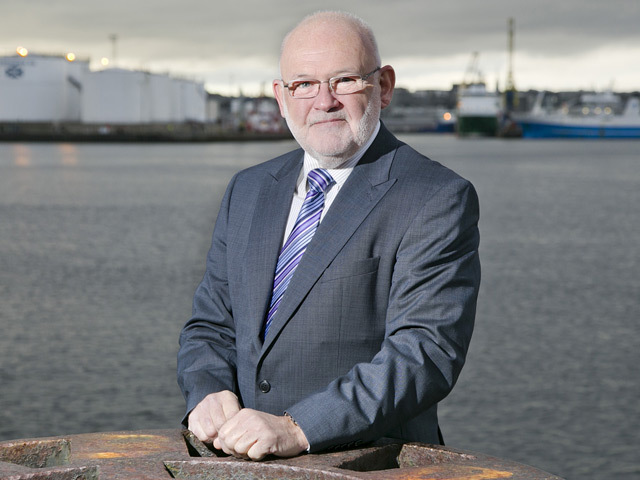
Confident he has built up enough steam in the North Sea decommissioning arena to push the sector ahead, industry chief Brian Nixon is set to retire in March next year.
Nixon, who has been chief executive at Decom North Sea since it first formed in 2009, says he is ready to take a step back and jokes he will finally have time to improve his golf handicap.
“Like many others in the energy industry I have spent a considerable amount of my career working away from home for weeks and months at a time,” Nixon tells Energy Voice.
“I therefore plan to spend more time with my wife, three daughters and as of this week six grandchildren, see some more of the beautiful world we live in, do lots more hill walking, and see if I can become a more respectable golfer.”
Decom North Sea was originally formed with funding from Scottish and UK government agencies in response to an industry-wide recognition that a ramp up in North Sea decommissioning work was on the way.
Four years down the line the organisation is fully privately funded with more than 230 members from across the world.
In fact Nixon hails the transition from a public sector-funded body to a not-for-profit fully privately-funded body within 18 months as his biggest achievement in the role so far.
He says a lot of progress has been made in the sector in the past four years, but uncertainty surrounding when and how operators will start their decommissioning work in the North Sea remains a challenge.
“The industry has been very good at introducing new technologies and extending the life of our assets,” he says. “And the result of that is that the start of the decommissioning programme has been pushed back time and time again, and that has led to uncertainty. That’s something we still wrestle with.”
He says Decom is working with operators to help them develop their decommissioning plans as well as offering advice to service companies on how to best set up their businesses to meet the needs of operators.
Work will most likely be carried out by existing oil and gas companies and any purely specialist decommissioning companies will be few and far between, predicts Nixon.
“Companies are all working out their strategies and we are helping them do that. There is investment required and capacity building required, but largely speaking companies will do decommissiong as an additional business opportunity.”
Part of the work to assist companies has been the development of a blueprint for submitting decommissioning plans to the government, says Nixon.
“Prior to this operators were left to figure out how much information to submit to the regulator for approval,” explains Nixon. “We had seen some of 400 pages in size and some which were 50-60 pages. There was clearly a lack of understanding and operators were uncertain about the amount of information required.”
The blueprint provides a clear and concise template for decommissioning plan submission, and is significantly shorter at 25-pages in length.
“It gives the operators a framework for what they have to say in these programmes and provides regulators with programmes submitted in a standard fashion,” says Nixon.
Decom also provides advise on pricing and contracts between operators and service companies for decommissioning work.
This, says Nixon, will help companies overcome challenges when drawing up plans for a new wave of work and provide a happy medium between totally reimbursable and lump sum contracts.
And as operators get to grips with their first decommissioning programmes – BP is ahead of the game working on its second decommissioning programme – the planning process is likely to become more streamlined, predicts Nixon.
He says a lot of work will take place over the next few years – only 7% of the total UK North Sea decommissioning work has been completed to date – with 800 temporarily suspended wells needed plugged and abandoned in the next ten years.
Plugging and abandoning remains the most challenging aspect of North Sea decommissioning work, accounting for 40% of total expenditure, explains Nixon.
“We have built up a considerable inventory – around 5,000 in the UK North Sea – of suspended wells and the operators are learning that this is more demanding and more challenging than most people thought,” he says. “It’s the aspect of the industry in the greatest need of innovation.”
So what does the future hold for the newly emerging North Sea decommissioning sector and will Nixon still play a role in this?
“We do believe that what happens in the North Sea in the next four to five years will absolutely set the international benchmark for deep water decommissioning around the world,” he says.
“The focus for the time being is on the North Sea but we do have members from Norway, France, Germany, Belgium and the United States and we are already tracking international opportunities.”
As for his own personal plans, Nixon says: “I plan to ease off a little but I’d like to think that my industry knowledge and experience will be of benefit for some time to come, possibly to Decom North Sea, or to other companies and organisations seeking strategic support or advice.”
Recommended for you
